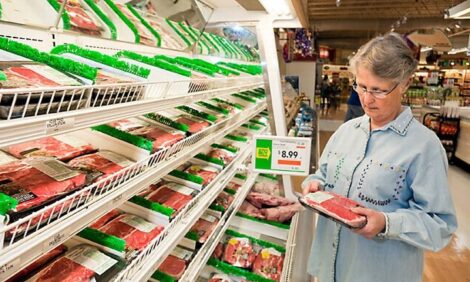



Measures Targeted at Supply Chain Expenses
CHINA - China's cabinet rolled out 10 measures on Wednesday to reduce costs in supply chains as the country strives to expand domestic demand amid urbanization.The measures seek to deal with challenges facing services and product suppliers, but economists called for further steps to boost consumer confidence and increase their income.
Utility costs in agricultural production and supply should be lowered, according to a statement released after an executive meeting of the State Council, presided over by Premier Wen Jiabao.
Power and water costs in pig farming and vegetable production will be equal to agricultural production costs, while power, gas and heating costs in farmers' markets will be the same as industrial costs.
Moreover, fees in farmers' markets will be cut and standardized. Suburban farmers will be entitled to sell their home-grown fresh agricultural products in specialized areas of farmers' markets without paying slotting fees, the release said.
The government also required the value-added tax exemption to be expanded to apply to some meat and egg products. The land-use and house property tax of wholesale markets of agricultural products and farmers' markets will be exempted for three years by 2013.
Fees in public services will be subject to stricter regulations, according to the release.
The rate of fees, including installation fees, maintenance fees and inspection fees, will be publicized, while the standard bank-card fee will be optimized and adjusted as soon as possible.
These measures came in the wake of a notice issued in early August by the State Council to reform the structure of supply chains and boost the development of the industry to increase the sector's contribution to economic growth.
China's economic growth expanded to 7.4 percent in the third quarter, the slowest pace since 2009, and the government aims to balance the driving force of investment and exports with domestic demand.
Xu Wei, a researcher from the China Center for International Economic Exchanges, said: "These measures mainly aim to regulate the supply and sale of agricultural products.
They are of great significance because the increasing sales of agricultural products not only promotes the development of agricultural industry, but also enhances farmers' incomes and purchasing power."
Jin Linbo, vice-president of the National Academy of Economic Strategy at the Chinese Academy of Social Sciences, agreed, saying that the measures are timely in view of weak domestic consumption.
"These measures intend to solve problems confronting services and product suppliers. However, the key to expanding domestic demand lies in increasing consumers' income and enhancing their consumption confidence.
"More measures should be introduced to resolve social security concerns as well as medical and educational challenges in the process of urbanization," Jin said.
He added that these measures may not benefit Chinese exporters tapping the domestic market because of market environment differences.
Instead, research and design will help exporters improve their products and meet international demands.
China's exports in the first 11 months rose by 7.3 percent from a year earlier, and the whole year's exports are expected to drive down the country's economic growth.








